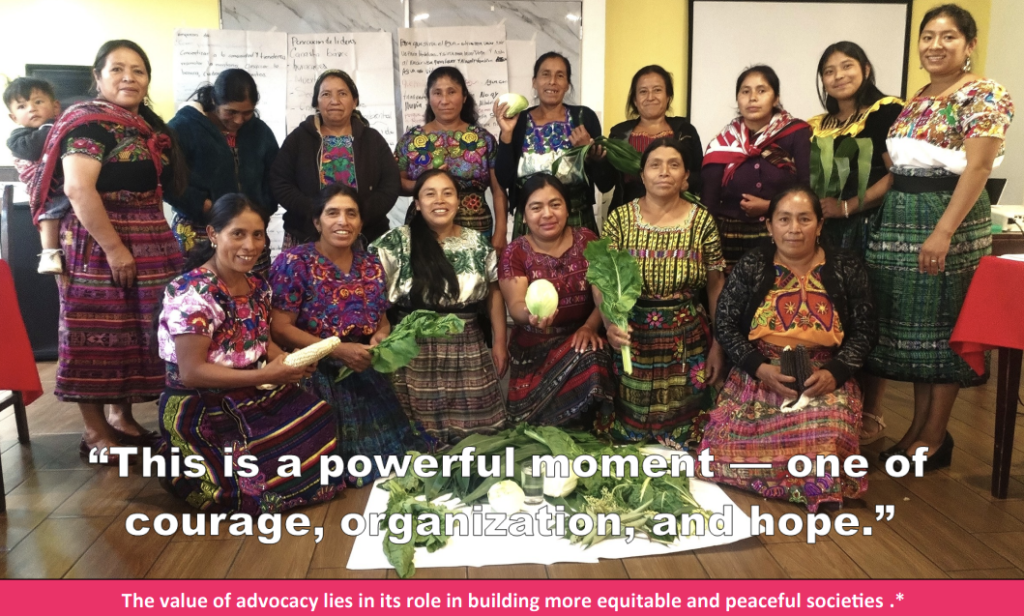
Seizing the Moment: Women’s Advocacy and the Transformation of Public Policy*
What does it mean to advocate for transformative public policy — and why does it matter?
In the rural Guatemalan communities where Project Harvest works, it means ensuring access to the essentials of life: shelter, clean water, education, health care, land, and the resources needed to grow food. For decades, governments have failed to meet these needs, despite the constant organizing and demands of social movements.
Three years ago, however, something rare happened. A majority of Guatemalans elected a government with progressive leanings — an opening that Project Harvest had long been hoping for.
Ten years earlier, the organization launched its Education and Formation Program, designed to help rural families — especially women — reflect critically on their circumstances, understand their constitutional and Indigenous rights, and organize collectively to seek change. The goal was not just education, but empowerment: to equip women with the knowledge and confidence to become community leaders and active participants in advocacy efforts.
Over the years, Project Harvest has worked to help organize women’s groups at both community and departmental (provincial) levels, strengthening their capacity to engage directly with government representatives. Through this process, women have learned the power of advocacy to influence policy — ensuring that national resources benefit everyone, not just a few.
An early milestone came when women leaders met with newly elected members of Congress to discuss the policy reforms rural communities viewed as essential. Before President Bernardo Arévalo took office, they sent him a letter outlining these priorities — a step that has already shown results.
Two years into the administration, several of their proposals have been acted upon:
The end of clientelism** (vote-buying) through an objective census to identify real needs among rural families.
The curbing of nepotism*** and cronyism in the hiring of teachers and agricultural personnel within government ministries.
Most recently, women leaders have joined national efforts to promote a law regulating water use, a vital issue for rural livelihoods and food security (see related article on page 6).
There are times when marginalized communities must confront unresponsive governments. But there are also moments — like this one — when genuine collaboration becomes possible. And the women leaders Project Harvest has helped to form are seizing this moment, ensuring their voices are heard and that public policies truly serve the well-being of all.
* Public policies are principles, laws, actions, or guidelines established by government to address societal issues, problems, or the public interest, guiding the government’s actions and influencing the lives of citizens.
** Clientelism refers to the exchange of goods and services for political support, often involving an implicit or explicit quid-pro-quo.
***Nepotism refers to favouritism to relatives due to the blood relationship rather than making decisions based on standard metrics such as performance, personality, achievements and results. A related term is cronyism, which is favouritism to friends and other non-relatives based on the relationship rather than merit.
